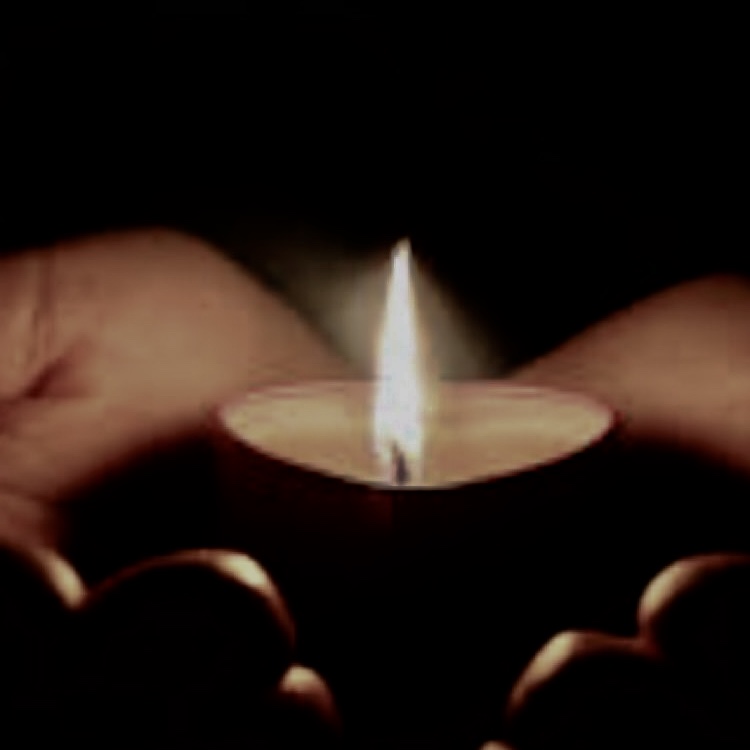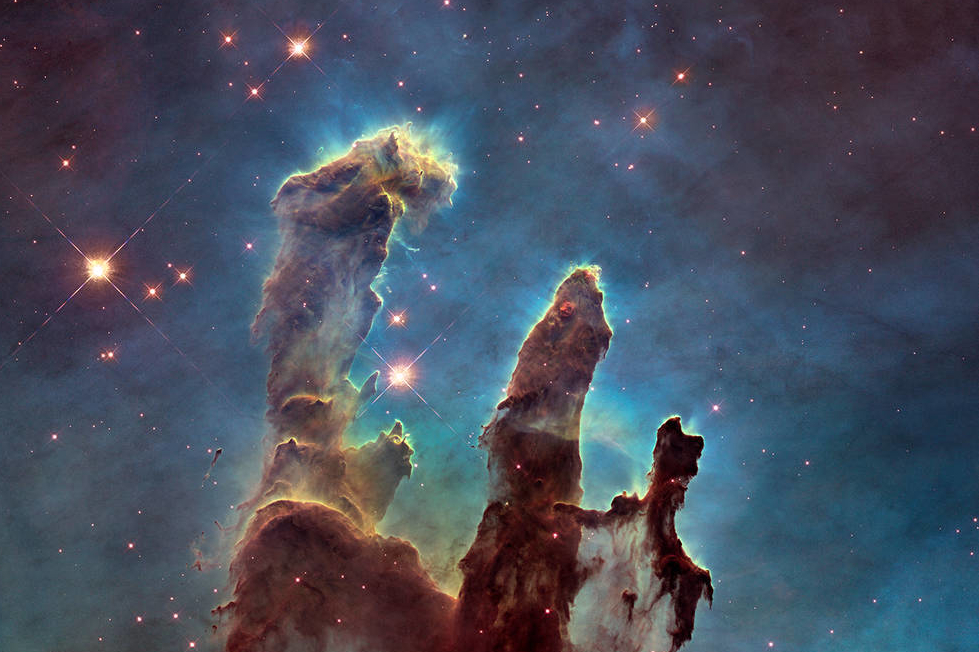Summoning Light from Darkness

The human eye has a white surface surrounding a black pupil. Contrary to what you might expect, we do not see with the white of the eye but with the black part. Rabbenu Bahya, BaMidbar 8.2.3
Judaism is an ancient tradition, and to belong to it is to know that no matter what is happening to you and to us, we have a precedent for it; “there is nothing new under the sun” said the author of Kohelet, Ecclesiastes (Eccl. 1.9). Our Jewish response (not reaction – that’s emotional) to terror and to joy is the same: “this too is Torah and I must learn it.” (BT Berakhot 62a) And so here we are again, bearing our sorrow and our fear, our anger and our love, bringing it all to our shared holy space: Torah Study.
This is the second year of the Triennial Cycle for Torah reading, and so in parashat VaYera we begin with a story that most of us would rather not engage; the wholesale destruction of Sodom and Gomorrah. It’s easy uplifting to focus upon our ancestor Abraham’s noble argument with HaShem not to destroy the cities, lest the innocent be destroyed with the guilty – yet we know that the cities are in fact destroyed, including any good people who may have lived there, along with the evil.
It’s as clear as any child’s intuitively wise question about the Flood: what did the animals do? Destruction is never “clean.”
Immediately our thoughts may turn to the Israeli bombing of Gaza and the innocent people dying there, along with their “elected” government, the Hamas terrorists. Our broken hearts for our murdered people in southern Israel are further agonized knowing that they were innocent of (and activist against!) their own government’s evil acts.
The sages of our Talmud explore the terrible truth: that good is more often than not swept away with evil. They begin with Abraham’s plea: “shall not the Judge of all the earth do Justice?” (Gen. 18.25), and they find in HaShem’s answer a light we might also use against all this encroaching darkness, even though many will die who are innocent, and much that is true will be falsified.
וַיֹּ֣אמֶר ה’ אִם־אֶמְצָ֥א בִסְדֹ֛ם חֲמִשִּׁ֥ים צַדִּיקִ֖ם בְּת֣וֹךְ הָעִ֑יר וְנָשָׂ֥אתִי לְכׇל־הַמָּק֖וֹם בַּעֲבוּרָֽם׃
And ‘ה answered, “If I find within the city of Sodom fifty innocent ones, I will forgive the whole place for their sake.” (Gen. 18.26)
The close reading Andalusian Torah commentator Abraham Ibn Ezra draws out a subtle implication:
“The reason for the words “within the city” indicates that they act with righteousness in public.” He compares the words of Jeremiah, speaking for HaShem:
שׁוֹטְט֞וּ בְּחוּצ֣וֹת יְרוּשָׁלַ֗͏ִם וּרְאוּ־נָ֤א וּדְעוּ֙ וּבַקְשׁ֣וּ בִרְחוֹבוֹתֶ֔יהָ אִם־תִּמְצְא֣וּ אִ֔ישׁ אִם־יֵ֛שׁ עֹשֶׂ֥ה מִשְׁפָּ֖ט מְבַקֵּ֣שׁ אֱמוּנָ֑ה וְאֶסְלַ֖ח לָֽהּ׃
Roam the streets of Jerusalem, search its squares, look about and take note:
You will not find anyone engaged; there is no one who acts justly, who seeks integrity— that I should pardon her. (Jeremiah 5.1)
Thus we conclude: our tradition has no time for those who would be righteous only within circles where they know they are safe.
Jeremiah, that poor doomed prophet, did not want to say this: when there is no good person who will stand up “in the streets”, publicly, against groupthink and group actions that are evil, then we are all doomed. Good people will not be fairly treated, nor miraculously rescued, and separating themselves from the evil will not avail. To believe that their good intentions will save those who have not acted upon them is childish. As it has been said: life is not fair: it is, simply, life.
Our Torah reminds us that “it is not far away across the sea” or up in heaven, but in our mouths and our hands, to do it (Deut. 30.13).
We have seen repeatedly in our learning that it is the individual withdrawal from community, aka the public, that brings about wholesale destruction of what Deuteronomy calls “moist and dry alike” (Deut. 29.18). The withdrawal can take many forms: Not acting because I’m not directly affected
Withdrawing from a greater force to protect myself alone
Separating myself because I feel unappreciated
Shutting off from the outside due to feeling overwhelmed
Taking care only of my own loved ones
You can probably add more versions of this from your own observation – and maybe even your own actions. “Devil take the hindmost” which we call in Jewish Amalek, preys on weakness, fear, and especially anger. Anger is the most destructive of emotions because it does not build community but contributes to its destruction. It separates us from each other when we need each other the most.
This has been our learning since Yom Kippur: we have no guarantee that our story turns out to be happy in the end. The wisdom of Jewish tradition urges us to focus on each day as its own end. “Justice, justice you must pursue” (Deut. 16.20) indicates that means as well as ends must be just. Meeting anger with anger is wrong; meeting injustice with injustice is wrong; meeting death with death is wrong.
Justice, starting with the refusal to withdraw from community, is simple. It requires only remembering not to react, but respond. We can’t help the emotion of reaction, but we can rise above giving ourselves permission to act upon it, toward the empathy that sheds light upon us all. That is the true righteousness we need in our day, to illuminate our streets.
As HaShem asked Abram to do, according to our Sages, in the original lekh l’kha call he heard: בא והאר לפני bo, v’ha’eyr l’fanai: come and light the way for Me. Let your light of kindness and empathy, of graciousness and compassion, shine, even as you yourself need it; there is much darkness ahead, and you, yourself, are needed.
Shabbat shalom,
שנשמע בסורות טובות
نرجو أن تأتي إلينا أخبار سارة
May we hear good tidings,
Rabbi Ariel
_______________________________________________
אַחֵינוּ כָּל בֵּית יִשְׂרָאֵלהַנְּתוּנִים בַּצָּרָה וּבַשִּׁבְיָההָעוֹמְדִים בֵּין בַּיָּם וּבֵין בַּיַּבָּשָׁההַמָּקוֹםיְרַחֵם עֲלֵיהֶםוְיוֹצִיאֵםמִצָּרָה לִרְוָחָהוּמֵאֲפֵלָה לְאוֹרָה וּמִשִּׁעְבּוּד לִגְאֻלָּההָשָׁתָא בַּעֲגָלָא וּבִזְמַן קָרִיב וְאִמְרוּ אָמֵן
Our siblings of the house of Israel
Who are given over to suffering and captivity
Whether at sea or on land
HaMakom
Be compassion upon them
And bring them out from darkness to light
From bondage to redemption
Now, quickly and soon in our day
And let us say
Amen
